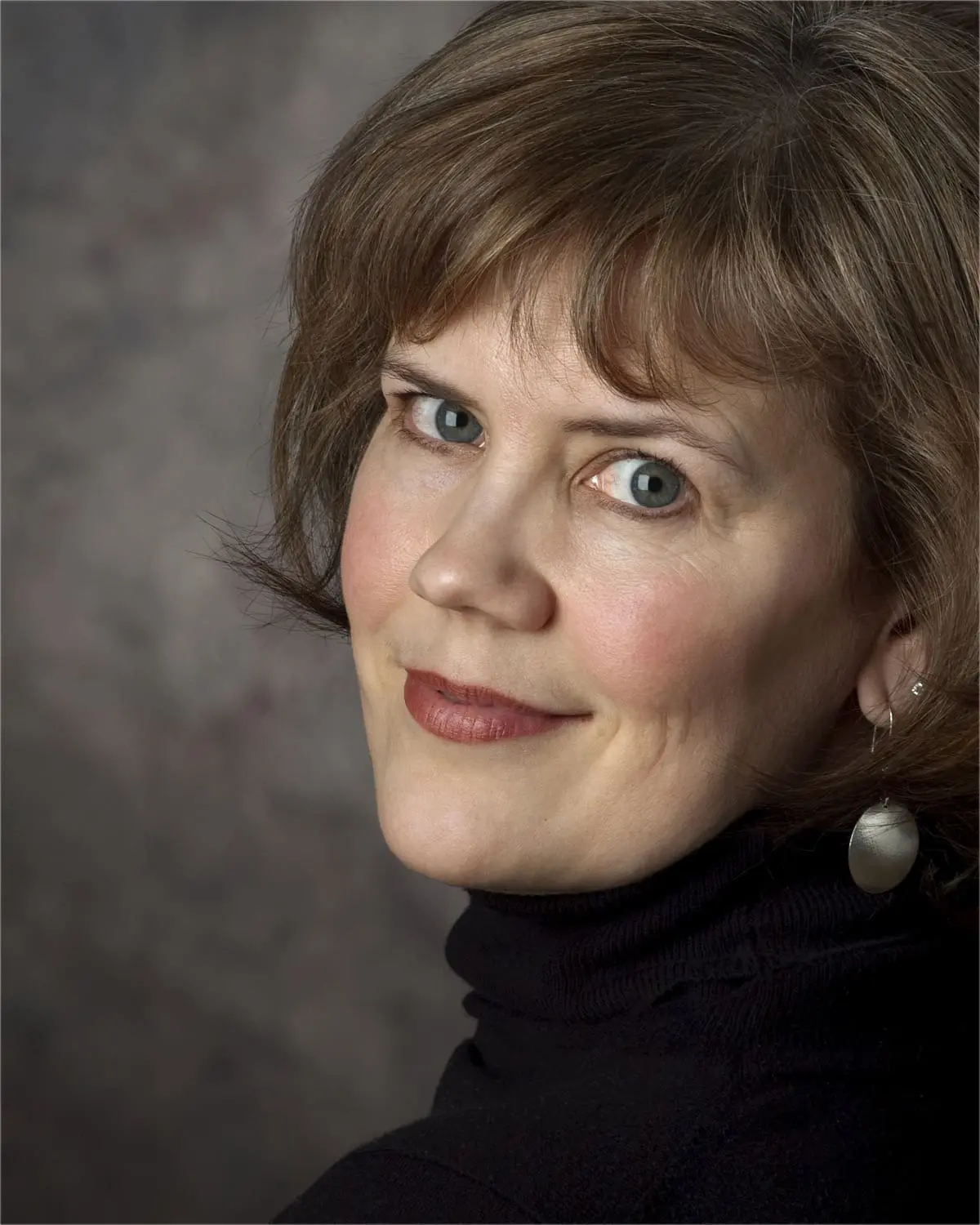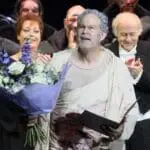There’s irony in the fact that Manitoba Underground Opera presented, as its 2024 season closer, an opéra fantastique about three staunchly heterosexual love stories in Canada’s longest-running gay bar.
But “love is love” as they say, and with MUO’s production of Jacques Offenbach’s The Tales of Hoffmann staged in the glittering Club 200, the venue proved an intriguing space for stage director Matthew Paris-Irvine’s (company debut) loud ‘n’ proud, gender-bending version of the opera. With the first Sunday matinee’s performance cheekily introduced by executive director Brendan McKeen as a “weird, ridiculous, slightly stupid but fabulous production,” Club 200 also served an apt doppelganger for librettist Jules Barbier’s original Nuremberg tavern setting.
Its nine-performance run, sung in English and held between September 18 and 29, 2024, was also the longest production in the now 16-year-old company’s history, pushing its all-local cast to the max with scarcely a day between shows to catch its collective breath. Kudos to Paris-Irvine for his skillful whittling of the opera’s nearly three-hour length. This decidedly more compact, audience-friendly version clocked in at less than two hours (including intermission) and had several culturally insensitive pieces, like the Kleinzach aria among others, left on the cutting room floor.
Tenor Adam Sperry deserves special mention for his yeoman’s duty as the title character. He embarks on his emotional trajectory during the Prologue as the poetic dreamer, recounting his love interests as three facets of prima donna Stella. His final realization that it is his Muse, and thus his art – and not the opera singer – whom he truly loves, is capped (naturally) by an all-cast celebratory dance as the club’s mirror ball throws sparks.
Stephen Haiko-Pena arguably gets the juiciest roles as The Four Villains, embodying the opera’s collection of diabolical forces. He seamlessly morphs between the smooth-talking Lindorf, mad-scientist Coppélius, angry magician Daportutto and sadistic Dr. Miracle with his solid acting skills, clearly differentiating each role, underscored by his booming bass-baritone voice. The popular singer is also unafraid to “camp out,” with the latter, caped character swooping about the stage like a bat out of hell as he lords power over Antonia while urging her to sing to her death.
One of the show’s most fascinating performances belonged to self-described “queer, trans, Filipino multidisciplinary storyteller” soprano Kris Cahatol in their dual roles of The Muse and Hoffmann’s trustworthy friend Nicklausse – here played as a drag king – who accompanies him on his journey. Despite the work of the production’s drag consultant, Winnipeg’s Moxie Cotton, and Cahatol’s clarion, agile vocals, this portrayal could have been ramped up even further. In fact, the entire show’s theatrical thrusts felt overly tame for what it purported to be, and could have gone much, much further in terms of spectacle (while avoiding cliché), missing several golden opportunities for greater artistic license as the narrative fought against its inherently “straight” ethos.

Photo Credit: Paul McKeen
Adam Sperry and Janice Marple in The Tales of Hoffmann
Having said that however, it’s a no brainer that Olympia’s famous aria “The birds in the bower” (“Les oiseaux dans la charmille”) will always be a highlight, with soprano Alice Macgregor as the mechanical doll nearly stopping the show after incredibly rising on her toes in pink pointe shoes while perfectly nailing her stratospheric coloratura passages. Her expressionless face, herky-jerky movements and poker straight limbs as Spalanzani’s automaton created its own fascinating subtext regarding the traditionally cookie-cutter rigours of classical ballet, with her nerves-of-steel performance truly mesmerizing.
Soprano Janice Marple, fresh from her role as Ava in MUO’s spring production of Rocking Horse Winner, appeared as (equally) status-conscious courtesan Giulietta. After delivering her lushly lyrical barcarolle “Beautiful night, oh night of love” (“Belle nuit, ô nuit d’amour”), she entwined her powerhouse vocals with Sperry’s in their subsequent love duet “Friends, tender and dreamy love” (“Amis, l’amour tendre et rêveur”).
Coloratura soprano Ashley Boychuk brought sweetness to the role of Crespel’s daughter Antonia, torn between her passion to sing at risk of death and her love for Hoffmann, as they perform their melodious “It’s a love song” (“C’est une chanson d’amour”).
Other cast members displayed their versatility with multiple roles: Grace Budoloski (Gretel in MUO’s Hansel and Gretel) played The Four Servants (Andrès, Cochenille, Frantz and Pitichinaccio), Christopher Dunn appeared as Hermann and Schlémil, and Paul Forget (Bassett in Rocking Horse Winner) played The Three Fathers (Luther, Crespel, and Spalanzani), with another strong performance by Stephanie Schmid as Nathanaël.
The production (thankfully) featured music director Megan Dufrat’s spot-on, less-is-more keyboard accompaniment, neatly solving pesky balance issues that have plagued this company in prior years when incorporating chamber orchestras in smaller spaces. A tightly knit, nine-member chorus prepared by chorus master/coach Shannon Hiebert navigated bar stools, steps and tables to deliver satisfying harmonies and musical commentary.
In the gay-bar-set production, Hoffmann recounts tales culled from his travels, ultimately realizing home is where the art lives – a sentiment knowing no boundaries of time, space nor particular gender expression.

Photo Credit: Paul McKeen
Manitoba Underground Opera’s production of The Tales of Hoffmann, presented in Club 200, Canada’s longest-running gay bar
Opera Canada depends on the generous contributions of its supporters to bring readers outstanding, in-depth coverage of opera in Canada and beyond. Please consider subscribing or donating today.
















